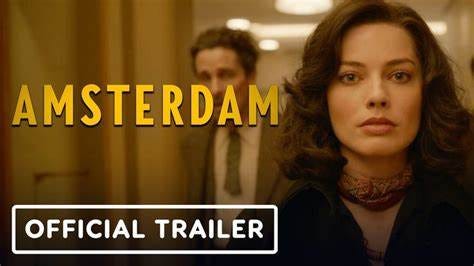Navigating a Whackadoodle World: Episode 31, or Why do some beliefs lead to violence?
A Whackadoodle discussion with my student about how beliefs can effect violence, along with a fun movie recommendation.
Click here if you would like to view Navigating a Whackadoodle World’s Table of Contents

“I have been thinking that what is happening in Israel with Hamas would be a good topic for the Power of Definition and Belief,” she said as she stuffed her schoolbooks back into her backpack.
“Oh no, no, no,” I interrupted. “I am not going down that rabbit hole.”
“What rabbit hole?”
“I refuse to talk about something so divisive on the Internet, where there is nothing but words on the page. On the Internet there is no body language, no emotional tone, no nuanced discussion, and no give and take. That way leads to madness, misunderstandings, finger pointing, and a lot of unfriending.”
“But…”
I interrupted again, “I don’t want to discuss the Israel-Hamas War with you unless you have read the History of Israel from 2000 BCE to 2023, The History of Palestine from 2000BCE to 2013, the History of Hamas from 1987 to 2017, The History of Terrorism from the First Century AD to 2017 and 2023 Israel-Hamas War. I don’t expect you to remember all the names and incidents, but I do expect you to get a feel as to what has been happening in the world and why. And remember,” I felt the need to add. “Whenever you read something, or hear something, you must consider the source upon which that something relies. You want to ingest information from as many divergent sources as possible, so you get the whole story and not just one or two sides.”
“But I don’t want to talk about a specific war,” she said when I was finally finished. “I want to talk about how beliefs can be a cause of war. You know, war in general.”
“Oh,” I said, suddenly stumped. “I suppose that’s different.” I was still feeling uncomfortable using war in a discussion about the Power of Definition and Belief. It seemed too trivial a topic when people were dying. “Couldn’t we just talk about how beliefs are often a cause of violence in general?”
She considered my suggestion. “I suppose it’s kind of the same thing, isn’t it?” I didn’t answer. I simply waited for her verdict. “Yeah, I think that would even be better. It brings it closer to home.”
“How so?”
“Well, we aren’t really in a war. We’re just supporting our allies in their wars. Violence, on the other hand, we’ve got a lot of that everywhere.”
“Yes, we do,” I agreed. “So why do you think that beliefs are a cause of violence?”
“Well, it seems to me that their are two main reasons violence erupts. It’s either because someone has a strong belief about how the world should be shaped, and they are willing to force others into that image. Or they have strong beliefs about the people on the “other side” of a conflict, and they use that belief as an excuses for their violence. Does that make sense? It’s always the other side that is violent, the other side who doesn’t understand, the other side who is out to get them, the other side who started it, the other side who is defying their world. If we don’t get rid of that other side, we will never be safe. They say things like ‘we must exterminate them,’ as if they were rats.”
“I believe what you are describing is called dehumanization. It’s when people are taught to believe that the other side is less than human, and therefore not worthy of the respect owed to equals.”
“But they are also taught that the other side is dangerous, right?”
“That’s often a part of it.”
“But why would someone teach people to believe that?”
“Oh dear God,” I sighed. “There as many reasons as there are people. Some teach it because they were taught to believe it themselves. Some teach it in order motivate others into action. Some teach it to keep others afraid, so they can maintain their power. Other teach it because of crimes they have witnessed, having actually seen the ‘other side’ acting in unbelievingly cruel and inhumane ways. Whyever it happens, they all teach it for their own reasons. However, if we are talking about the Guideposts, we have to also ask ourselves what we can personally do about it.”
“Right,” she straightened her shoulders. “I suppose the first step is to not dehumanize anyone myself. It’s like you say in guidepost fourteen; place everything in it’s context and understanding comes indirectly.”
“Good first step.”
“I suppose the second step would be to change how I talk about things like violence,” she said looking up. “I can understand why it happens, but never accept it as the best solution.”
“Interesting second step,” I commented.
“Well, what I mean is that there are better ways to talk about stuff that results in violence, anger and unfriending. Instead of telling people what I think, I can ask questions to find out what they think. When I do want to make a point, I can use that Socratic Method you taught me to ‘wake people out of their assumptions.’ I can find out why they teach violence. Why they believe as they do. I can try to gain a little rapport before I go offering opinions about stuff I don’t fully understand. I can actually do some of that reading you mentioned earlier, so when I do ask questions, I’ll know what to ask.”
“I get where you are going, and I like it.” I smiled. “May I offer one more step?”
“Sure,” she nodded.
“Keep a sense of humor,” I suggested. “The world can be overwhelming if you don’t keep a sense of humor.”
“I don’t see how anyone can laugh at violence.”
“True,” I admitted. “However, it’s usually easy to spot the irony within it.”
“I’m not sure about that last one,” she said pulling on her backpack. She was all set to leave when she suddenly sat back down. “You know, all the violence in the world has started making me hate some of my favorite movies.”
“How so?”
“Well, so many of the stories are resolved with violence. These days when I watch them, I can’t seem to enjoy the stories as much. I keep thinking, ‘Why is violence the only solution? Why do cop shows always end in a shoot out? Why do the Avengers always have to destroy the villain?”
“That’s the reason I like Star Trek more than Star Wars,” I laughed. “Star Wars usually ends with something getting blown up—the dark side fighting against the light. I like my fantasy to be more complex. No absolute evil. No absolute good. Just people trying to figure things out. Like when Kirk figured out that the murderous Horta was just trying to protect her children.”
“Maybe I have to change my movie viewing preference,” she murmured then asked, “Where would you suggest I begin?”
“Are you actually asking me for a movie recommendation?”
“Yeah, something good. Something that renews my faith in the world.”
“Well, the last movie that made me laugh and restored some of my faith in humanity was Amsterdam. It’s loosely based on the 1933 Business Plot political conspiracy, and it contains a perfect message for our present time.”
“That doesn’t sound very funny.”
“The funny part is how our heroes thwart the conspiracy,” I assured her, then added. “I should warn you that there is some violence, but none of it comes from our heroes.”
“Hum,” she said, standing back up. “I’ll check it out.”



